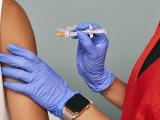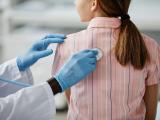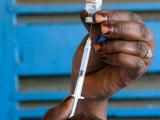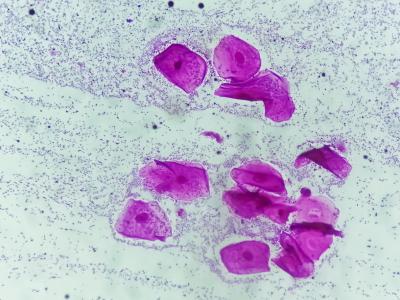Editor's Note: A correction was made to paragraph 5 on July 14.
Jul 11, 2003 (CIDRAP News) At least 10 people from Dyess Air Force Base near Abilene, Tex., have been isolated at home because of respiratory symptoms suggestive of SARS (severe acute respiratory syndrome), according to Air Force and Abilene officials. Three of the people recently traveled through Toronto, site of the largest SARS outbreak outside Asia, and the others came in contact with those three.
Initial test results on eight of the patients have come back negative for SARS, Dyess officials said in a statement today. Two of the tests were positive for Streptococcus pneumoniae, which is often seen in patients with pneumonia, Abilene city officials reported in a news release. The air base listed the number of ill people at 11, but the city's news release said 10.
Three Dyess personnel traveled through Toronto on Jul 1 and were at the airport only an hour waiting for connecting flights, according to the Abilene release. Toronto was declared free of local SARS transmission Jul 2 by the World Health Organization (WHO) and by the Centers for Disease Control and Prevention (CDC) on Jul 7.
The ill people exhibited "minimal symptoms of SARS," according to the news release. Additional tests are being conducted, and definitive results may not be available for 2 or 3 weeks, officials said.
Master Sgt. Bill Lincicome of the Dyess Air Force Base public affairs office told CIDRAP News the patients were seen at the base, which has a clinic for less severe illnesses and injuries, and then referred to a hospital in Abilene. He said the base has been working with the city to provide the public with information because many Dyess personnel live in the city rather than on the base.
The city news release said no one has required hospitalization and all the patients are isolated at home under the care of Dyess medical personnel. Because they had a connection to Toronto and had symptoms consistent with SARS, it was necessary to isolate them in accordance with procedures recommended by the CDC.
Dyess spokesman Capt. David May stated in the news release, "Although there is no concrete evidence that any of our quarantined members have SARS, we are following all CDC guidelines and performing the necessary precautions as if they do to ensure no infections spread and our people are well taken care of."
In other SARS developments, the CDC this week canceled its travel alert notices for Hong Kong and Toronto. More than 30 daysthree times the incubation periodhas passed since the last reported probable case of SARS in both places, the agency said. CDC travel alerts do not advise against travel, but inform travelers of a health concern and suggest specific precautions. CDC travel alerts remain in effect for Beijing and Taiwan.
As of today there have been 8,437 probable SARS cases and 813 deaths worldwide, according to the WHO.
See also:
CDC announcement on travel alerts
http://www.cdc.gov/media/pressrel/r030710.htm
WHO SARS case count
http://www.who.int/csr/sars/country/2003_07_11/en/





















